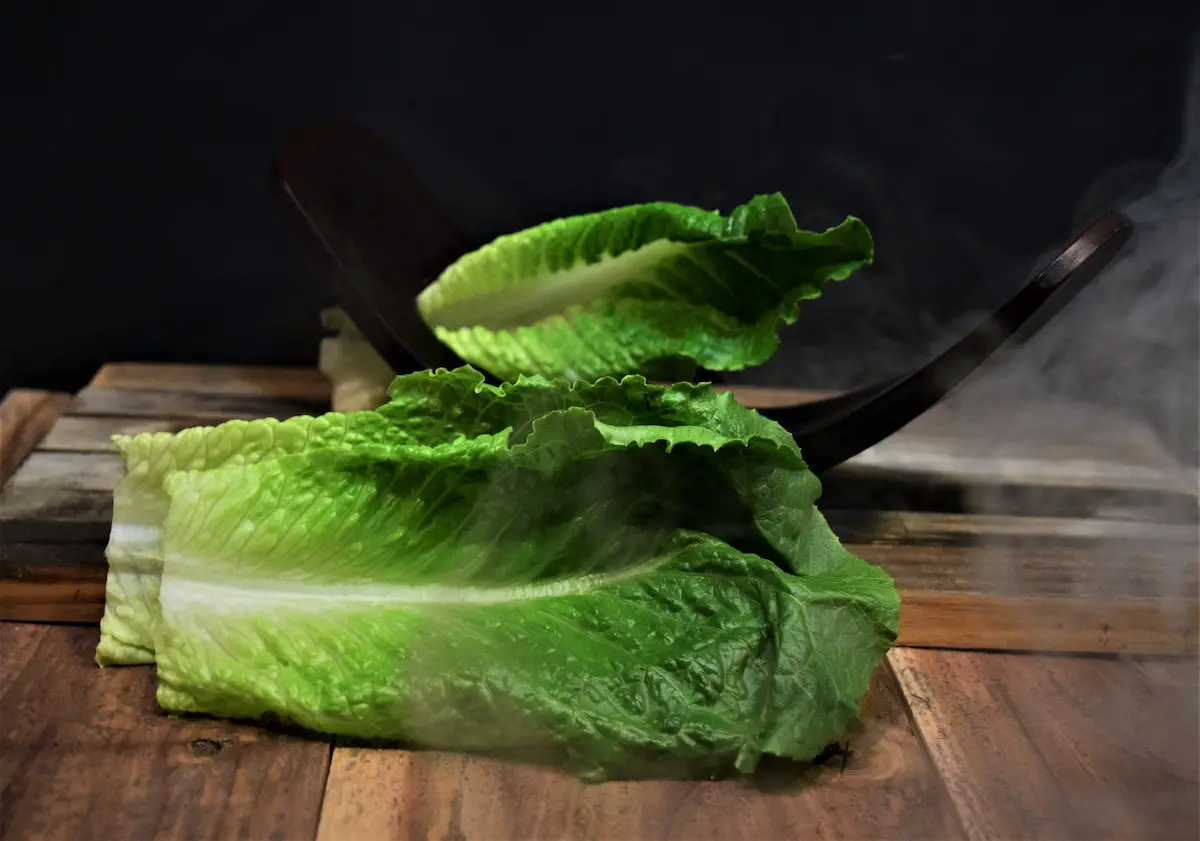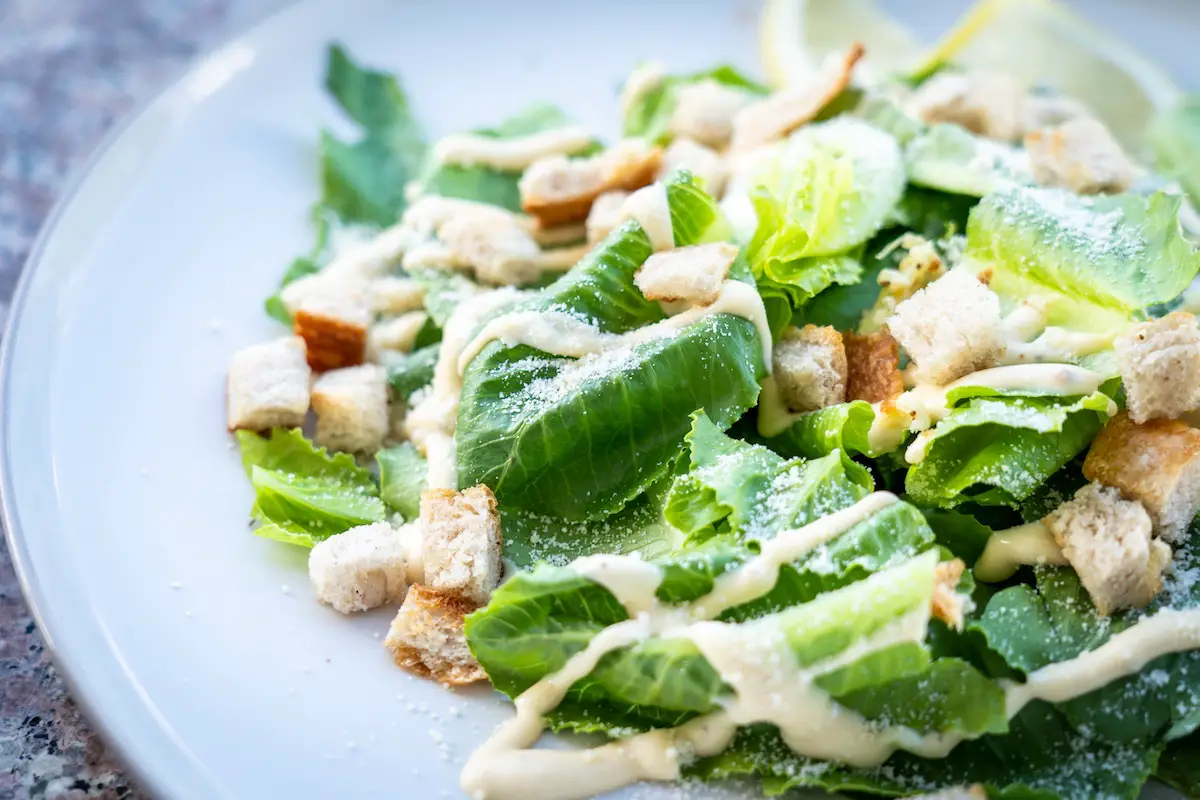Can You Freeze Salad? Which Salads Can & Can’t Be Frozen
Norah Clark
Salad greens are not suitable for freezing, as their high water content causes them to become slimy and mushy when frozen. For optimal results, store salads in the refrigerator and consume them within 48 hours to maintain freshness and quality.
While it’s possible to freeze a wide range of foods, not everything should be frozen. For instance, you may have purchased bags of pre-mixed salads on sale or prepared a large batch for your weekday meals, but freezing them is not advisable. Salads don’t last forever, even in the refrigerator. Freezing them will result in a slimy, inedible mess.
This article will explore common salad ingredients and their suitability for freezing. Read on to learn which ingredients don’t fare well in the freezer and potential alternatives.
Freezing Lettuce
Lettuce, a key salad component, is particularly unsuitable for freezing. Freezing fresh lettuce for salads is a bad idea, as ice crystals will form and damage the plant cells. Thicker-leafed lettuce varieties like Romaine, Cos, Boston, or butterheads may withstand freezing better, but they still won’t be suitable for salads once thawed. However, they can be cooked after being frozen.
Home-grown lettuce may fare better when frozen because it hasn’t been subjected to shipping and storage. Nonetheless, freezing lettuce is not recommended for preserving its fresh, crisp qualities.

How To Freeze Lettuce
If you must freeze lettuce for cooking purposes, follow these steps:
- Remove and wash leaves, and trim the leaf bases.
- Gently pat dry the leaves with a towel to remove excess water.
- Place dried leaves in freezer bags, expelling as much air as possible before sealing.
- Store the sealed bags in the freezer for up to six months.
Freezing Other Salad Ingredients
Different salad ingredients have unique freezing processes. Understanding which ingredients freeze well will help preserve some salad components for later use.
- Tomatoes: Not suitable for freezing when intended for salads, but can be frozen with skins on for cooked dishes.
- Cucumbers: High water content makes them unsuitable for freezing and thawing salads.
- Feta cheese: It can lose some flavor when frozen and thawed, but it is still usable in salads.
- Carrots: Can be frozen and used in salads after thawing, but blanching before freezing may help preserve flavor.
- Spinach: Becomes slimy and mushy when frozen and thawed and should be used in cooked dishes instead.
- Broccoli: Can be frozen and used in salads, but blanching before freezing is recommended.
- Mushrooms: Not suitable for freezing and thawing for salads.
To prolong your salad’s freshness, store it in a sealed container in the refrigerator and consume it before its expiration date. If you can’t finish the remaining salad, repurpose the ingredients in other dishes like stews and soups.
Can You Freeze Potato Salad?
You can freeze potato salad, but the texture might become somewhat mushy after thawing. To freeze it, simply place it in an airtight container and store it in the freezer. Thawing, however, requires more care, especially if the salad contains eggs or mayonnaise, as bacteria could grow if left to thaw at room temperature.
To ensure the potato salad remains safe, thaw it in the refrigerator overnight, allowing it to defrost slowly at a lower temperature. Once thawed, you can rejuvenate the salad by adding fresh dressing or herbs. Alternatively, you can warm up the potato salad for a different serving option.
Can You Freeze Chicken Salad?
In order to freeze chicken salad, it’s best to separate the ingredients before freezing. While salad components typically don’t freeze well, chicken can be frozen and consumed later. Remove the chicken pieces from the salad and store them in airtight containers or freezer bags.
To defrost, place the chicken in the refrigerator for a few hours, then reheat it in a frying pan or microwave before adding it to a fresh salad. This ensures the best texture and flavor when incorporating the chicken into a new salad.

Freezing Salad Dressing
Freezing salad dressings is generally not recommended, as the ingredients don’t all freeze well. Some may separate upon freezing, while others may not freeze at all. Most salad dressings have a long shelf life in the refrigerator, so it’s best to store them there and use them before their best-by date.
Homemade oil-based dressings can be stored, but avoid freezing dressings made with eggs and mayonnaise, as they may separate and become inedible upon thawing.
When planning to extend the life of your salad, consider alternative preservation methods.
Rather than freezing, try these tips to keep your salad fresh and crisp for a longer period:
- Use a Salad Spinner: A salad spinner removes excess water from washed greens, preventing sogginess and prolonging freshness. Store the dried greens in a sealed container in the refrigerator.
- Layering: When storing salad, layer ingredients thoughtfully. Place heartier ingredients at the bottom and delicate greens on top to prevent them from being crushed or wilting.
- Paper Towels: Placing a paper towel in the container can help absorb excess moisture, keeping your salad fresh and crisp.
- Airtight Containers: Store your salad in an airtight container to prevent the exchange of air and moisture, which can speed up the wilting process.
- Separate Dressings and Toppings: Store dressings and toppings separately from the greens and mix them right before eating. This prevents the salad from becoming soggy and helps maintain its texture.
Remember, some salad ingredients are better suited for freezing than others. If you find yourself with an abundance of certain ingredients, consider freezing and using them in other dishes later on.
For example, freeze vegetables like peas, green beans, or corn, which can be easily incorporated into soups, stews, and stir-fries. Similarly, fruits like berries and mangoes can be frozen and used in smoothies or desserts.
FAQs
Can you freeze ready made salads?
Freezing pre-made salads depends on their ingredients; high-water-content veggies don’t freeze well, while heartier components may be suitable for freezing.
How do you freeze fresh salad?
To freeze fresh salad, separate ingredients that freeze well, dry them thoroughly, and store them in airtight containers or freezer bags for optimal preservation.
Can you freeze lettuce mix?
Freezing lettuce mix isn’t recommended due to its high water content, which causes texture and flavor deterioration upon thawing.
What happens to salad if it freezes?
When salad freezes, ice crystals form in plant cells, damaging cell walls and resulting in a mushy, unappetizing texture upon thawing.
Summary
While freezing may not be the best option for preserving salads, you can employ several other methods to keep your salads fresh and crisp for an extended period. By following these tips, you can enjoy fresh, delicious salads without worrying about them going to waste.










